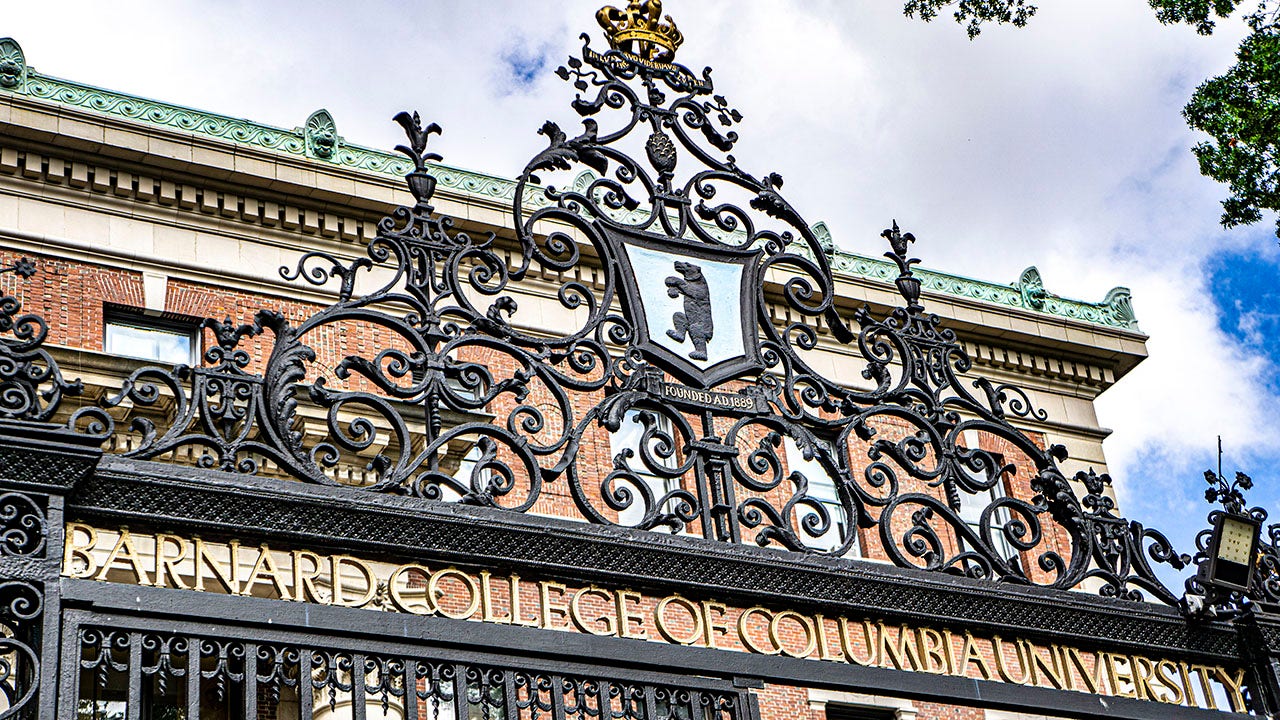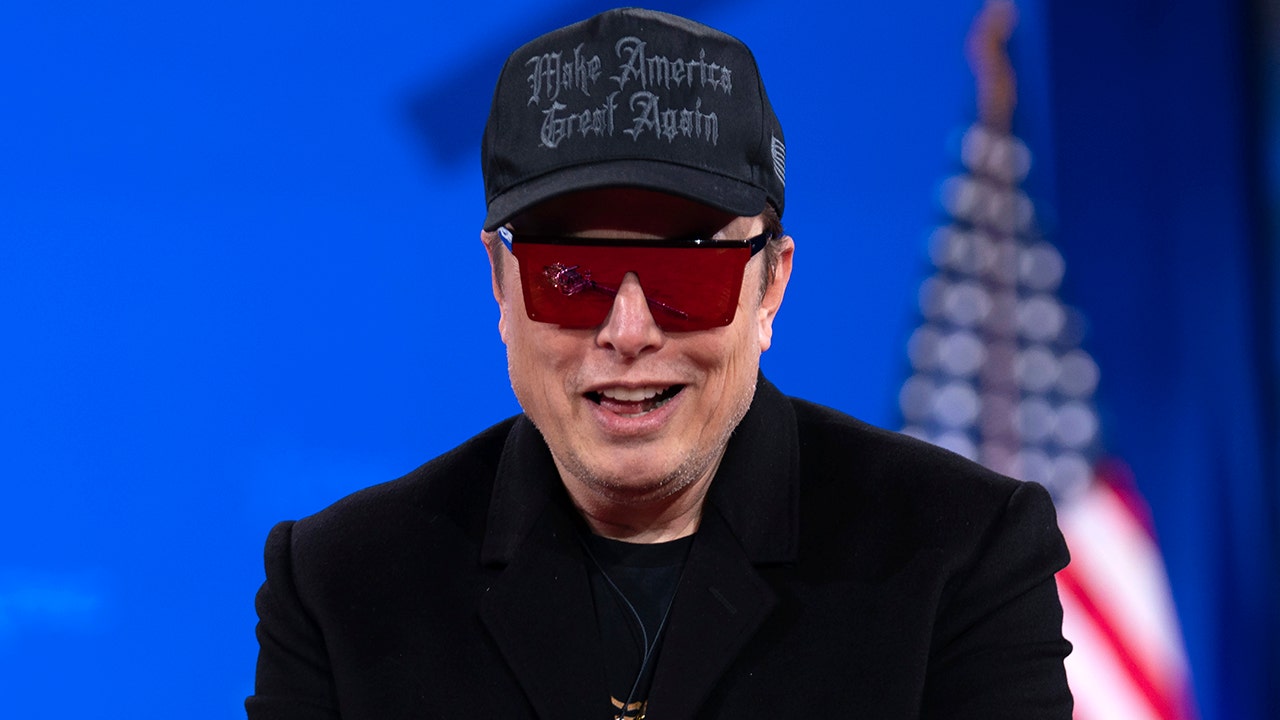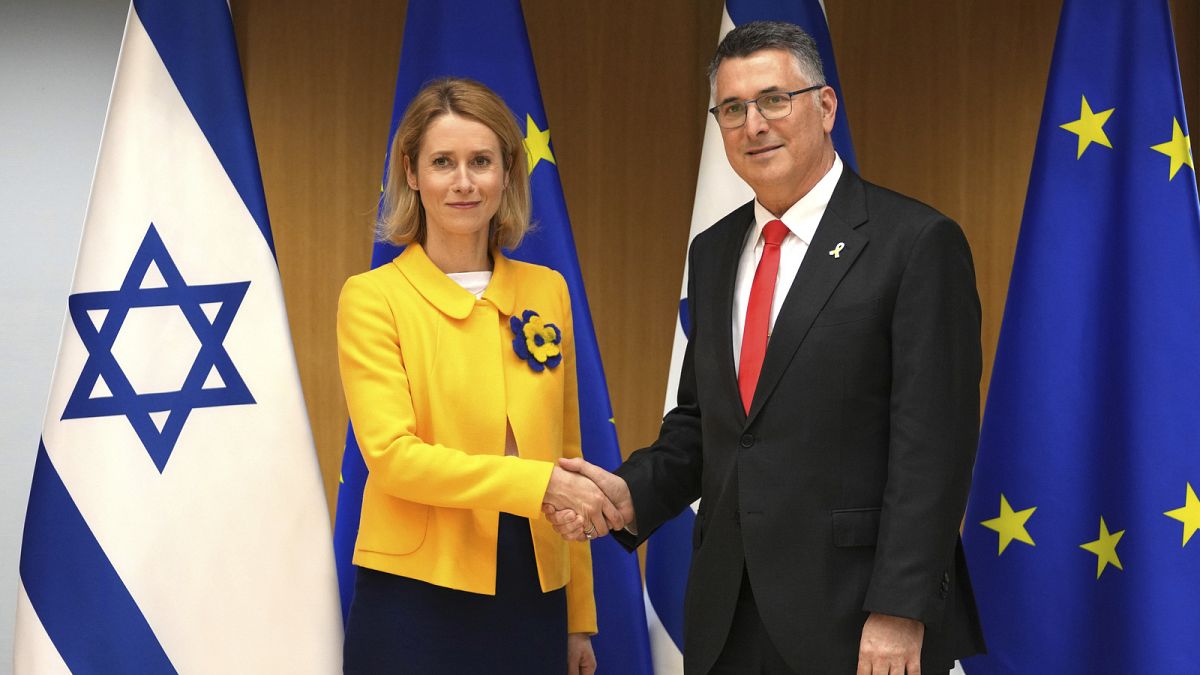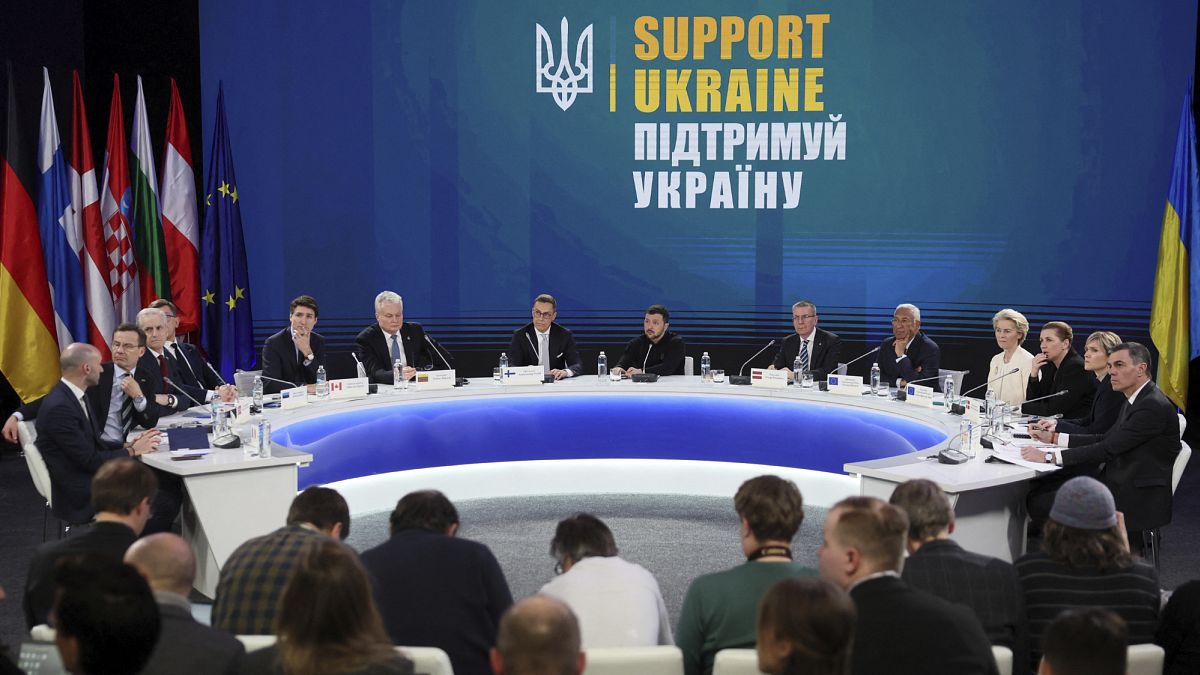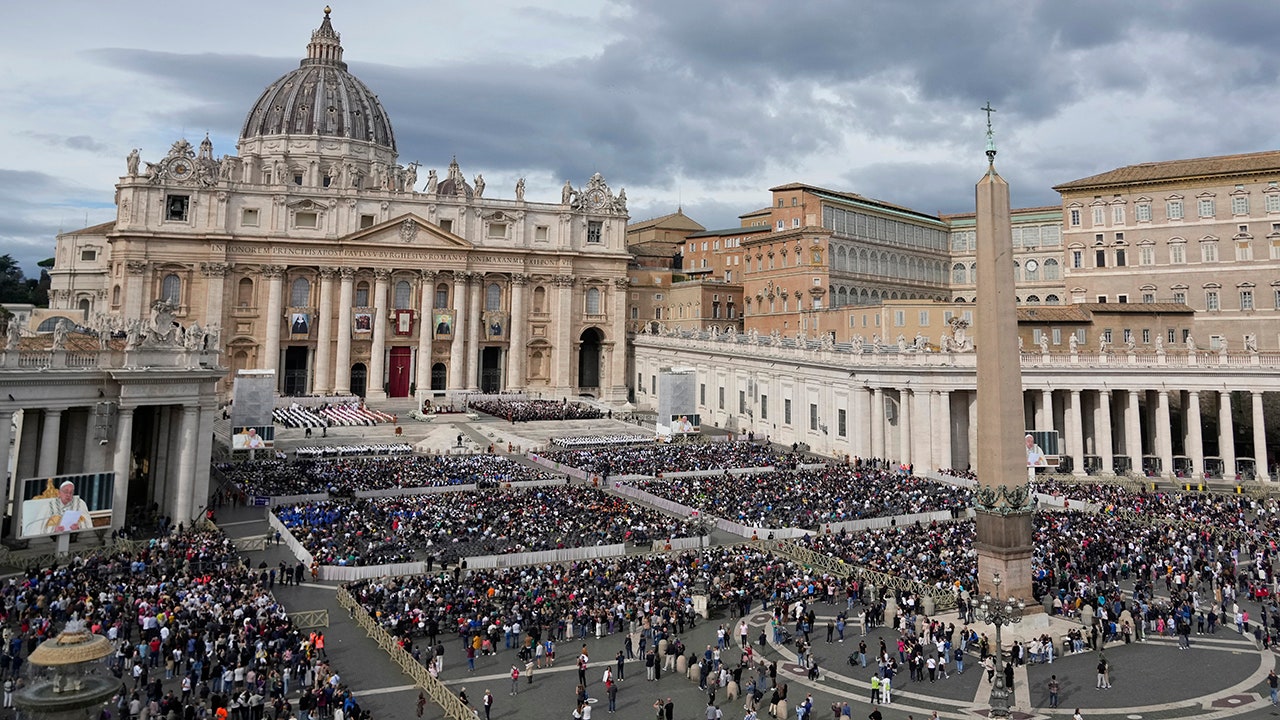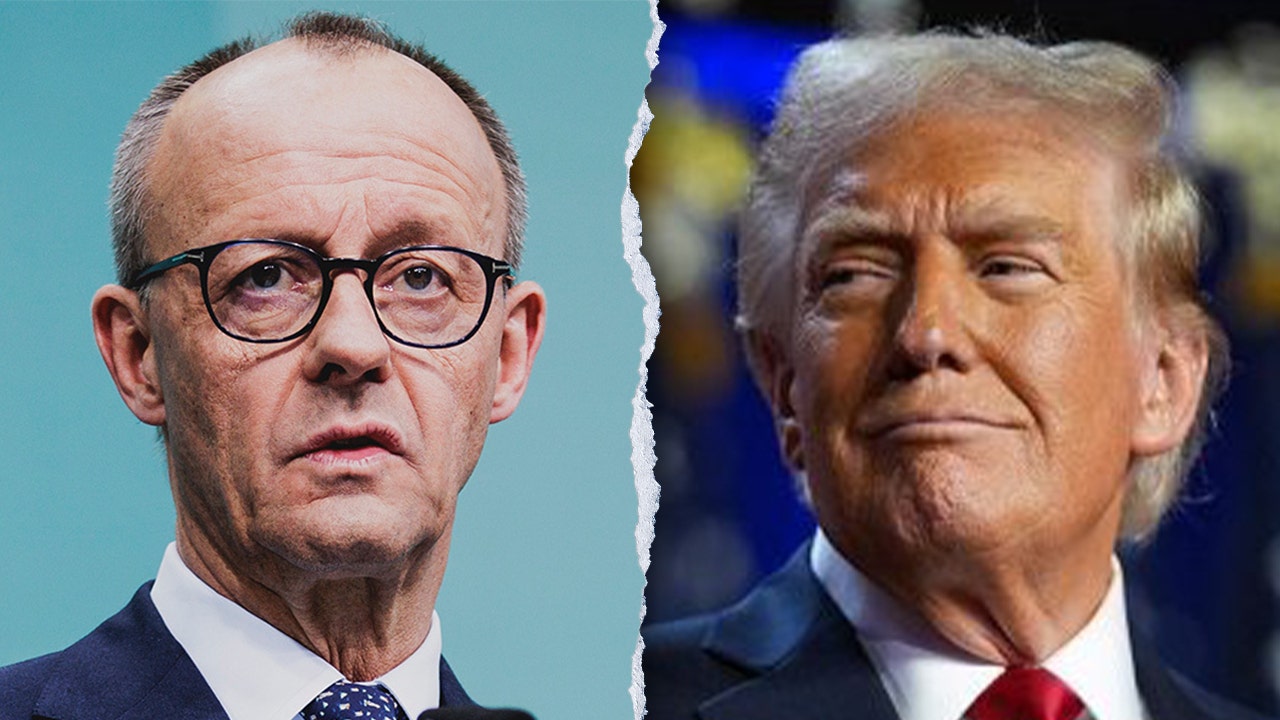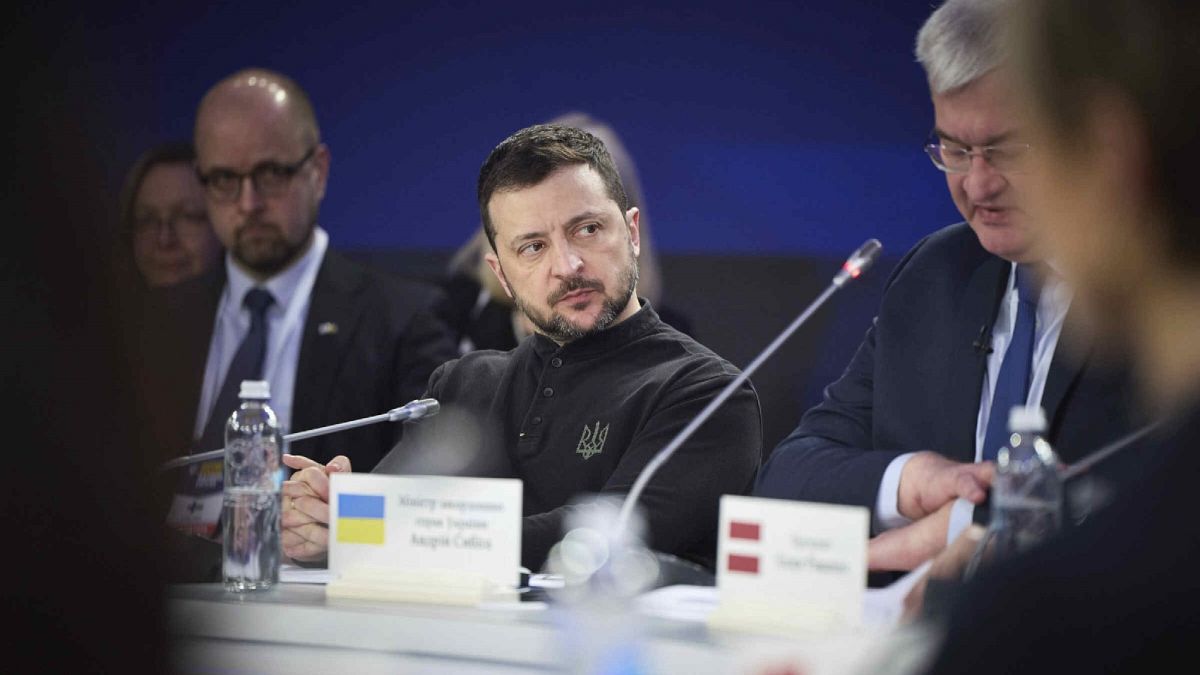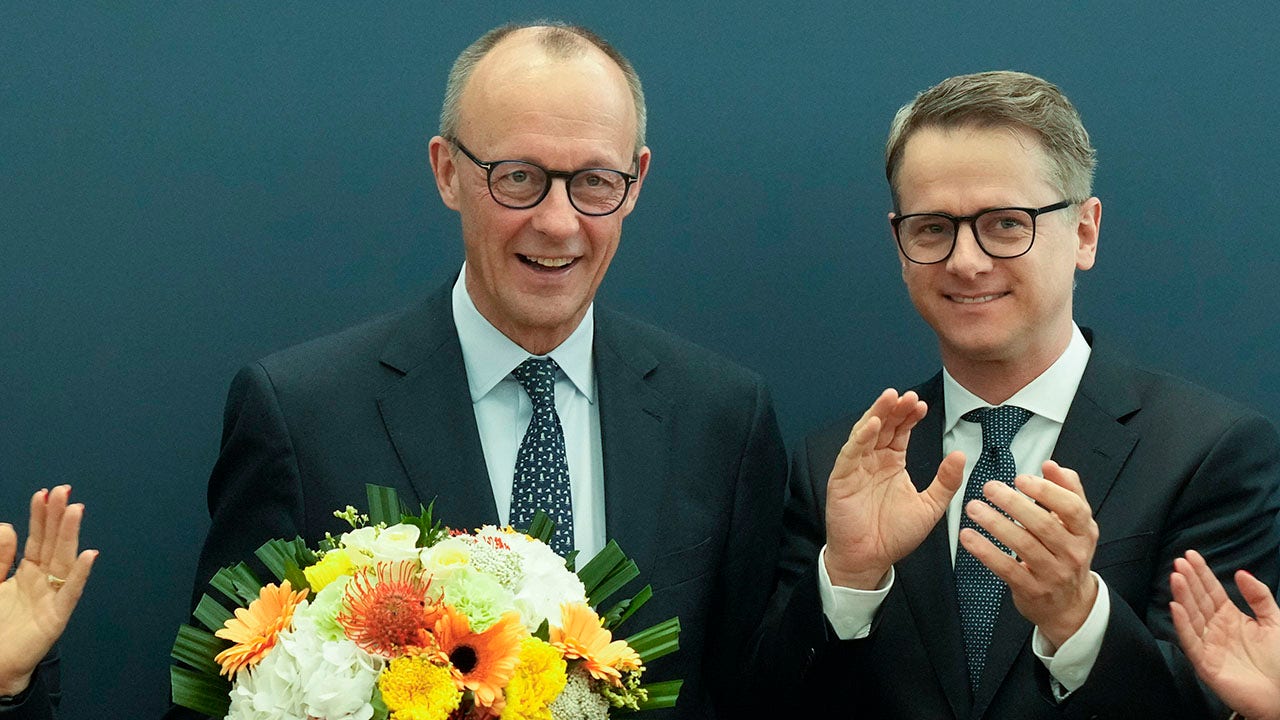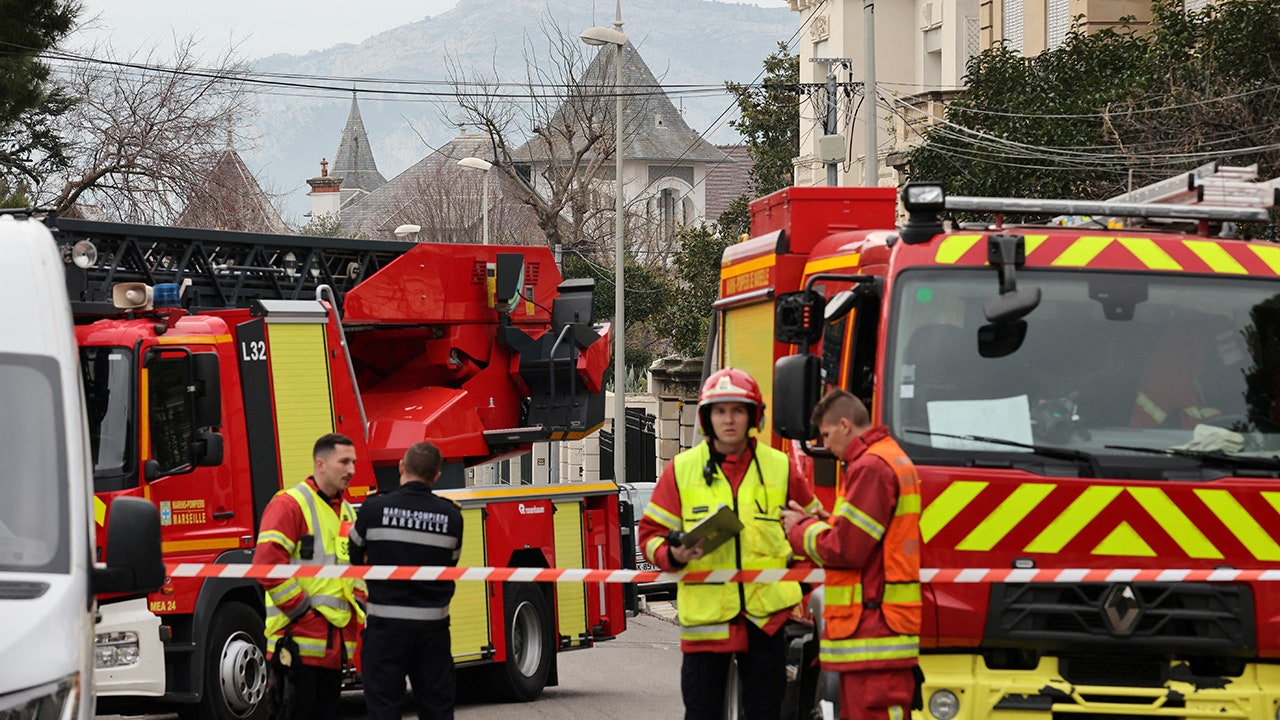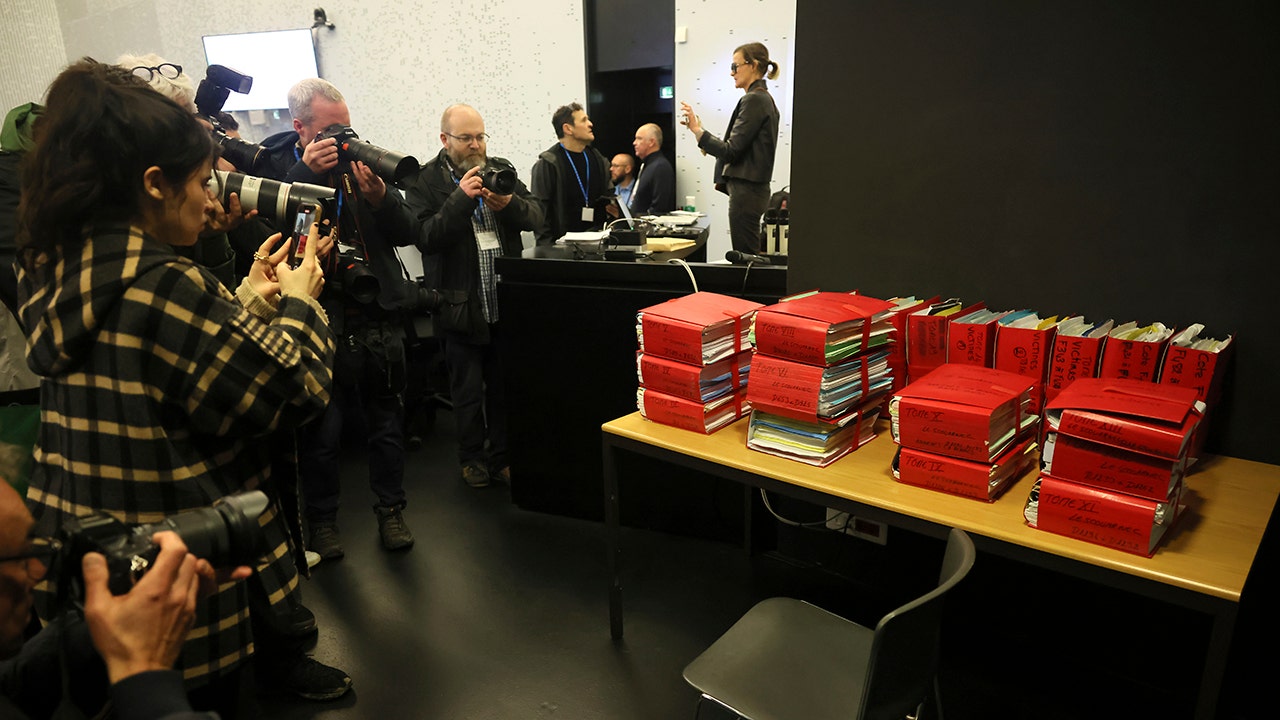Human rights organisations say the bloc’s failure to reconsider its trade and political ties with Israel amounts to “complicity” in alleged war crimes and breaches of international law.
EU foreign ministers met their Israeli counterpart Gideon Sa’ar in Brussels on Monday in a closed-door meeting that was originally intended to scrutinise Israel’s compliance with its human rights obligations under the EU-Israel Association Agreement.
But protracted talks among EU capitals to strike a common position ahead of the meeting meant calls to reconsider the agreement, spearheaded by Spain and Ireland, had waned and were “more or less off the table”, according to one diplomatic source.
The meeting, co-chaired by the EU’s top diplomat Kaja Kallas, came as a fragile ceasefire holds in Gaza and as the EU attempts to position itself for a role in supporting the rebuilding and the restoring of governance in the enclave.
“We had a candid meeting on issues of mutual concern,” Kallas told reporters.
“We are closely watching developments, and cannot hide our concern when it comes to the West Bank,” she added. Over the weekend, Israel said it would keep its troops in refugee camps in the north of the West Bank, after a military operation that has displaced thousands.
“Our political and economic ties remain strong even as we navigate a challenging period,” Dubravka Suica, the EU’s Commissionner for the Mediterranean, said, adding that the bloc stands ready to support Gaza’s reconstruction and efforts to shape the future governance of the enclave.
The Israeli foreign minister said Israel had “proven itself a stable and stong force” in a conflict-ridden region and called for Israel-EU relations to not be “held hostage to Israeli-Palestinian relations.”
Speaking following the meeting, Spanish foreign minister José Manuel Albares said that both he and Kallas had made clear to minister Sa’ar that the meeting was not taking place in a business-as-usual format.
But it came nine months after Spain and Ireland first penned a letter to European Commission President Ursula von der Leyen urging her executive to reconsider the bloc’s long-standing Association Agreement with Israel, which provides the basis for economic, trade and political ties between both sides.
Article 2 of the that agreement states that bilateral relations are conditional on the “respect for human rights and democratic principles,” and around 200 organisations have rallied around Ireland and Spain’s calls to reconsider whether Israel is still upholding those principles.
“If the European Union doesn’t respect this article of the agreement, it must assume that it is complicit in the crimes committed by this government towards people in Gaza and the West Bank,” Alexis Deswaef, vice-president of the International Federation for Human Rights, told reporters ahead of the meeting.
“The meeting met only the very low expectations it generated, in line with Europe’s untenable stance on Israel and Palestine,” Claudio Francavilla, associate EU director at Human Rights Watch, said.
“We have seen the EU on its best ever on Ukraine, and on its very worse when it comes to Gaza and Israel-Palestine. There can be no business as usual with a government responsible for crimes against humanity, including apartheid, and acts of genocide, and whose sitting prime minister is wanted for atrocity crimes by the International Criminal Court (ICC),” he added.
On Monday, Friedrich Merz, the leader of Germany’s CDU and likely incoming chancellor, said he would find a way for Israeli prime minister Benjamin Netanyahu to visit Germany without being arrested.
The Hague-based ICC has issued an arrest warrant for Netanyahu, placing an obligation on all state parties to the court’s Rome Treaty, including Germany, to arrest him if he steps on their territory.
Asked to comment on Merz’s invitation, Kallas said: “The EU supports the ICC, the neutrality and functioning of the ICC, and the principles of the Rome Statute (…) But it’s true that the enforcement of the ICC warrants is up for the member states to decide.”
Ministers raise UNRWA, settlement trade
According to diplomatic sources, some EU ministers raised concerns over Israeli legislation which bans the UN agency for Palestinian refugees (UNRWA) from operating on Israeli territory and severs Israel’s diplomatic ties to it. Last August, the UN fired nine UNRWA staff after concluding they may have been involved in the 7 October 2023 Hamas-led attacks against Israel.
In its position paper on Monday’s Association Council, Israel says that it has “proven that Hamas systematically infiltrated the ranks of UNRWA in Gaza to the point where it is beyond repair.”
Israel’s ban imperils UNRWA’s activities, particularly in Gaza, as it depends on Israel’s border crossings into the enclave to operate.
Some member states want the EU to respond by front-loading the funding it has earmarked for the agency in 2025.
Also raised were potential fresh measures against Israeli settlers responsible for escalating violence against Palestinians in the occupied West Bank and East Jerusalem.
The bloc already has sanctions in place against individuals and organisations responsible for the expansion of settlements, which all EU member states agree are illegal.
Under the Association Agreement, goods produced in Israeli settlements are exempt from preferential tariffs, but can still be traded under a 2004 ‘technical arrangement’ which requires such goods to be labelled.
But a July opinion by the UN’s top court said states were obliged to “abstain from entering into economic or trade dealings” with Israel in the territories it is occupied illegally, prompting calls on the bloc to completely ban settlement trade.
While some member states have called for stricter controls, others have blocked such measures in a stance of solidarity with Israel.
Read the full article here



